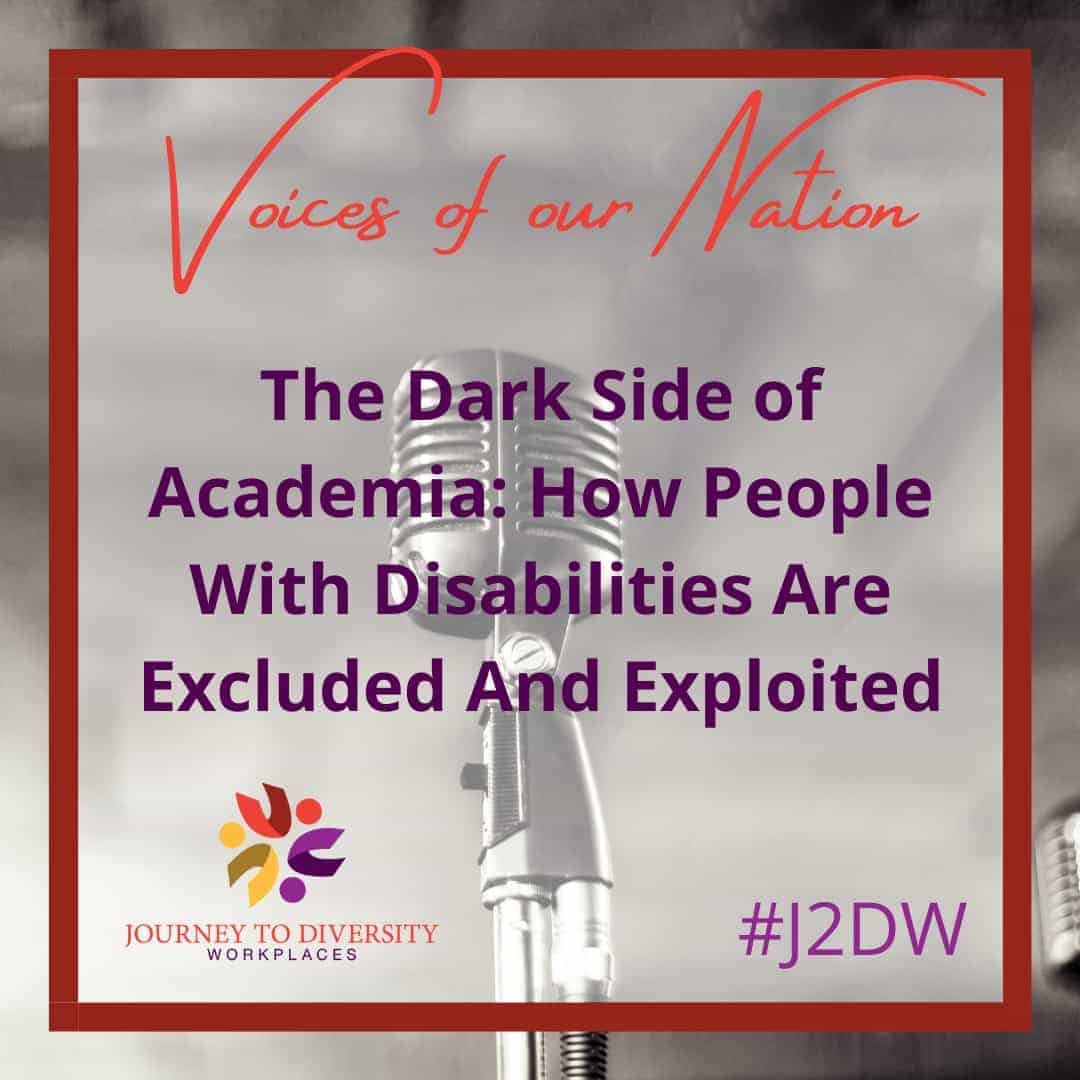Academia is already daunting on its own, but when you factor in ableism, the conversation often comes to a halt. Many individuals of authority are afraid of uncomfortable discussions, the ones that spill over into unventured topics, and, likely, the same ones they are not educated enough upon. The hesitancy to tackle subjects like ableism, Indigenous rights, antisemitism, racism, and most other ‘isms’ you can name, gives permission to the world to continue as it were and suppresses the needs, concerns, and valid criticism of those willing to take a stand.
When you think of academia, what do you imagine? Before I stepped foot into the world of research and education, I would envision labs and lab coats, thick books with small fonts, hours upon days of staring at a screen, graphs, data, lots of standing and typing, and overall a complete lack of sleep or routine in pursuit of knowledge and merit. Shockingly, the reality might not be far off, depending on your personal experiences in this field.
This begs the question, how many times have you noticed individuals with visible disabilities (or invisible, if you know of it) have a space to be completely involved in academia, be at the forefront of projects, or be able to achieve upward mobility in their fields? It’s not common, and the structure of academia consistently refuses these rights to become a reality because the industry thrives upon its reputation of struggle and difficulty. Diving into classism and privilege in academia and its workplaces is another topic on its own, but it is important to note that these factors influence and inform the portrayal of ableism in work environments.
Depending on the avenue of academia one walks into, prejudice can be evident in different ways. Ableism can show up in the intense demands of productivity that are expected of graduate and professional-level work environments, in the disregard for disability accommodations, and in small, cramped laboratory spaces with wheelchair-inaccessible designs.
An academic inquiry conducted regarding ableism in academia outlines the harshness of these expectations on fellow academics and the mental and professional toll it has on them (Brown & Ramlackhan, 2022). It illustrates that academia was built inherently on the assumption that all those involved are “healthy and well”, which simply translates to all able-bodied individuals (Brown & Ramlackhan, 2022). Then it further supports the previously stated point about productivity standards, stating that these above-the-bar productivity standards to succeed in academia create a disadvantage for academics with disabilities. As a result, these individuals get called “unproductive, deviant, in need of care” (Brown & Ramlackhan, 2022). Oppressive attitudes, uninclusive language, judgment, and hesitation cloud the air when navigating professional relationships with those that have a disability in academia, which further hinders these individuals’ ability to create strong networks (Brown & Ramlackhan, 2022).
According to a systematic review, it is apparent that the unsettling amount of stigma surrounding disability leads to a lack of conversation, which impedes one’s ability to find effective solutions (Lindsay & Fuentes, 2022). Ways to provide workplace accommodations can include flexibility in work hours and deadlines, modifications within tools or tasks, transforming the working environment to ensure accessibility, offering adaptive technology if necessary, and, most importantly, being receptive to feedback and criticism from the individual(s) that are subject to this assistance (Lindsay & Fuentes, 2022). This research highlights that people are wary of the unknown. Since most are unfamiliar with sharing an environment with someone that has a disability, they resist it, which only furthers the stigmatization of this topic and perpetuates an ableist working space (Lindsay & Fuentes, 2022). If more people become educated about navigating these situations and a productive discussion is had, then perhaps a more harmonious work environment could be achieved.
The archives of academia suggest a history of suppression– of women, people with disabilities, people of colour, those with low socioeconomic status, and any other individual that does not resemble a white man. On occasion, this corrupt system has been challenged, dissected, and presented for speculation by those affected by it in the past, but most stories exist in the unvocalized banishment of those with disabilities. In today’s world, I only hope that these conditions are not as dire, but it is clear that there is still quite a long way to go. To the readers, I leave you off with this reminder– any space, academia or not, will always be elevated and enriched with the presence of diverse perspectives, and so, an environment polluted by ableism can only survive so long at its own detriment.
References
Brown, N., Ramlackhan, K. Exploring experiences of ableism in academia: a constructivist inquiry. High Educ 83, 1225–1239 (2022). https://doi.org/10.1007/s10734-021-00739-y
Lindsay, S., & Fuentes, K. (2022). It Is Time to Address Ableism in Academia: A Systematic Review of the Experiences and Impact of Ableism among Faculty and Staff. Disabilities, 2(2), 178–203. MDPI AG. http://dx.doi.org/10.3390/disabilities2020014
This article was written by summer student Ilesha Prabhudesai. This article was funded by the Government of Canada.


